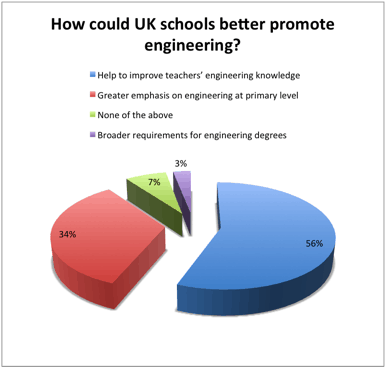Last week’s poll: Engineering in Schools
The majority of readers think that teachers need help to improve their understanding of engineering so they can introduce the discipline to their pupils.
Our poll about this report from the IMechE conmcerning engineering in schools attracted 448 responses, of which a clear majority, 56 per cent, thought that teachers needed more help to improve their engineering knowledge. The next largest group, 34 per cent, thought that a greater emphasis on engineering at primary level would reaper dividends later in students' lives. Only 3 per cent thought that broader requirements for engineering degrees would be useful, and only 7 per cent declined to pick one of the suggested options.

As ever, we encourage readers to continue to send us their thoughts on this subject.
Register now to continue reading
Thanks for visiting The Engineer. You’ve now reached your monthly limit of news stories. Register for free to unlock unlimited access to all of our news coverage, as well as premium content including opinion, in-depth features and special reports.
Benefits of registering
-
In-depth insights and coverage of key emerging trends
-
Unrestricted access to special reports throughout the year
-
Daily technology news delivered straight to your inbox











Water Sector Talent Exodus Could Cripple The Sector
Maybe if things are essential for the running of a country and we want to pay a fair price we should be running these utilities on a not for profit...